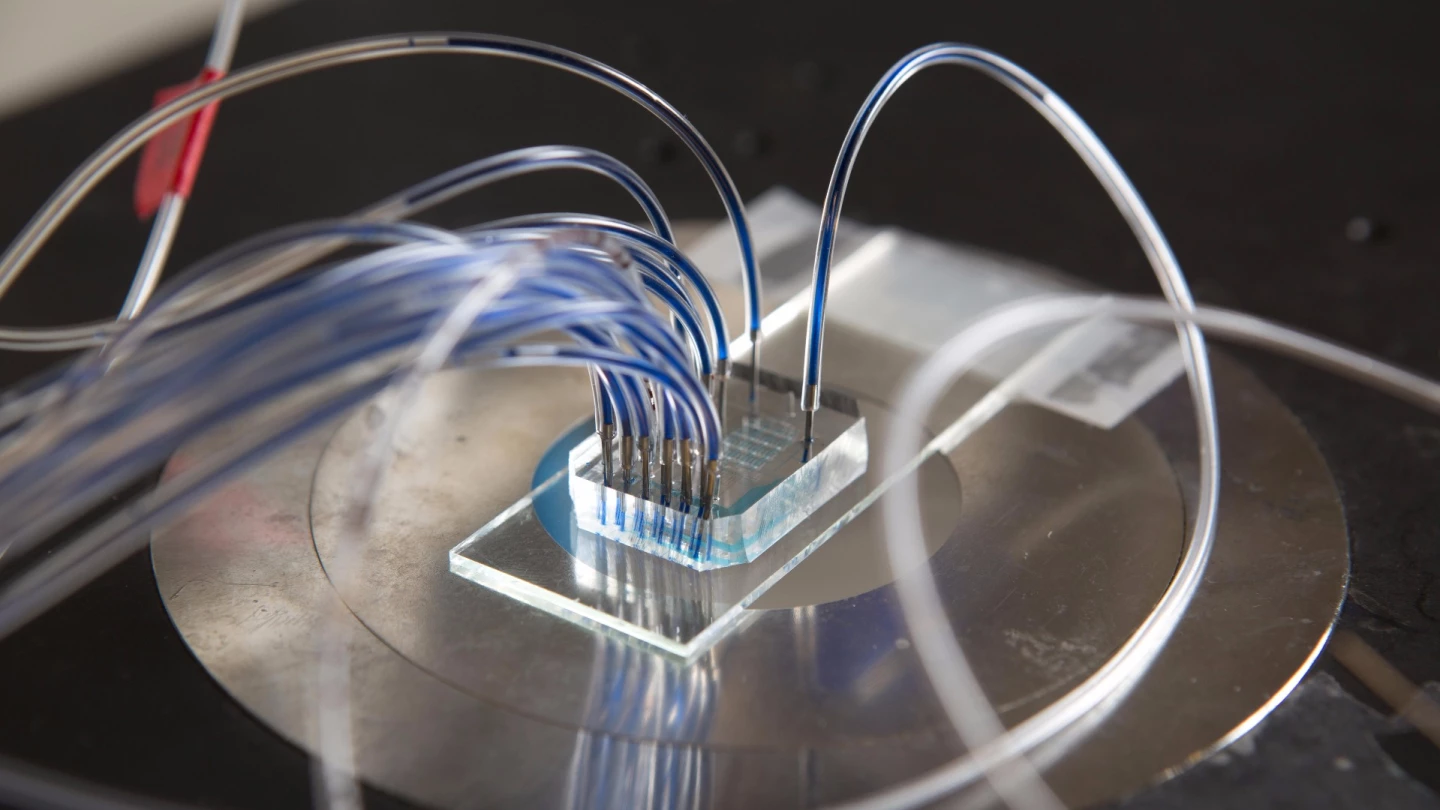A new low-cost device could be used to diagnose diseases in remote regions, where limitedhealth facilities make it difficult to deal with epidemics. Thesystem can provide accurate diagnoses from tiny samples of blood, andhas been successfully tested with Ebola.
The device, which is being developed byresearchers at the Swiss Federal Institute of Technology in Lausanne(EPFL), can detect numerous biomarkers in tiny samples of blood,making use of silicone rubber with miniscule channels running throughit, each just the width of a single hair. We've seen many diagnosticdevices that make use of microfluidic tech over the last few years,including an innovative "lab in a needle" system that usesbiopsied liver samples to provide diagnoses, and "lab-in-a-briefcase" solution for detecting cancer in developing countries.
The EPFL system is well-suited to usein remote locations. It runs on battery power and works with widelyavailable, inexpensive microscopes. It's able to detect up to 16different biomarkers in less than 0.005 milliliters of blood. Thebiomarkers, which are usually things like proteins, hormones orenzymes, can be used to provide a detailed picture of a patient'shealth, picking up numerous different diseases.

The system uses both digital and analogdetection mechanisms, with the former providing a highly-sensitivedetection of single biomarkers, while the latter is better at dealingwith high concentrations of biomarkers. It also works without theneed to pre-treat blood samples, which is a big bonus, as the use ofa centrifuge to separate plasma is time-consuming and requires largevolume samples.
The system has already beensuccessfully tested on a sample containing anti-Ebola antibodies,which indicate the presence of the virus even before the patient hasbegun to show symptoms. The researchers believe that the device couldbe used to detect a large number of other biomarkers, addressing agrowing need for convenient diagnostic tools for use in remotelocations.
"The platform will lead thedevelopment of new kinds of tests to meet the increasing demand foron-site diagnostic testing," said paper lead author FrancescoPiraino. "It will prove very useful for medical staff working inresource-limited regions."
The research is published in thejournal ACS Nano.
Source: EPFL





